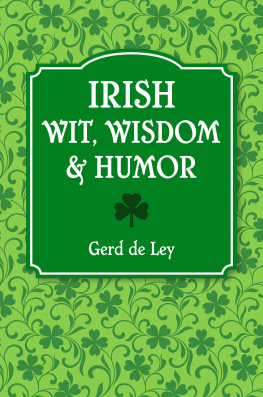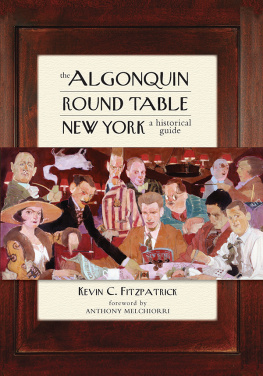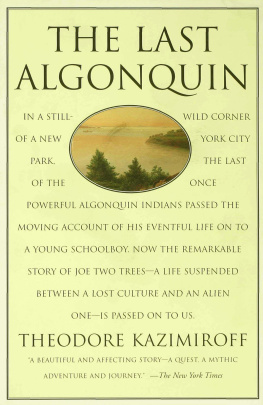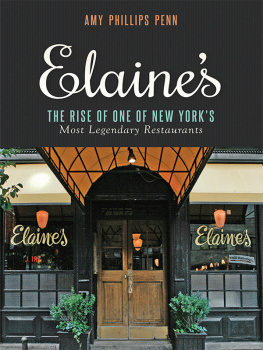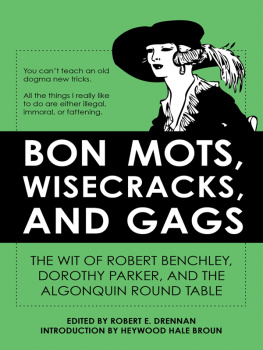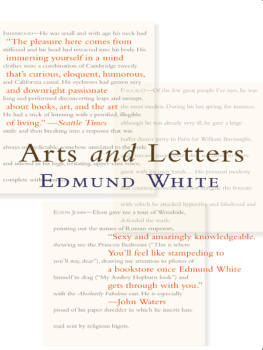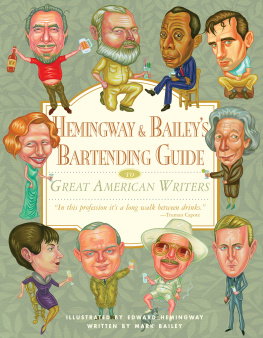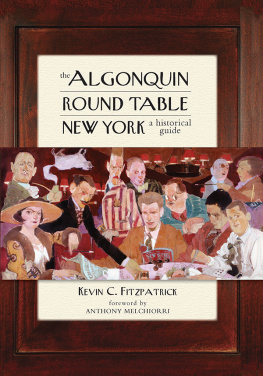
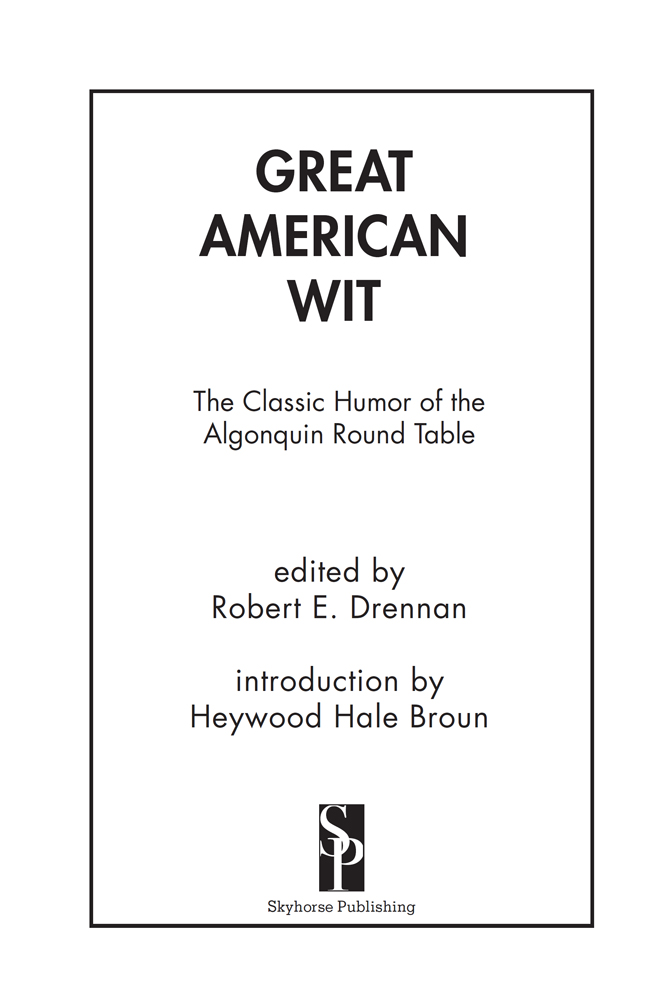
Copyright 2018 by Robert E. Drennan
All Rights Reserved. No part of this book may be reproduced in any manner without the express written consent of the publisher, except in the case of brief excerpts in critical reviews or articles. All inquiries should be addressed to Skyhorse Publishing, 307 West 36th Street, 11th Floor, New York, NY 10018.
Skyhorse Publishing books may be purchased in bulk at special discounts for sales promotion, corporate gifts, fund-raising, or educational purposes. Special editions can also be created to specifications. For details, contact the Special Sales Department, Skyhorse Publishing, 307 West 36th Street, 11th Floor, New York, NY 10018 or info@skyhorsepublishing.com.
Skyhorse and Skyhorse Publishing are registered trademarks of Skyhorse Publishing, Inc., a Delaware corporation.
Visit our website at www.skyhorsepublishing.com.
10 9 8 7 6 5 4 3 2 1
Print ISBN: 978-1-5107-2438-9
eBook ISBN: 978-1-5107-2439-6
Cover design by Jenny Zemanek
Printed in China
To the Memory of T.A.D. and E.C.U., Connecticut Wits
Acknowledgments
The editor wishes to thank the following for permission to reprint the material included in this book:
Ring Lardner, Jr., for selections from Say It With Oil by Ring Lardner, published by Doubleday & Co., copyright 1923 by G. H. Doran Co., and from The Ring Lardner Reader, published by Charles Scribners Sons, copyright 1963.
The Viking Press, Inc., for The Letters of Alexander Woollcott, edited by Beatrice Kaufman and Joseph Hennessey, copyright 1944.
American Heritage Publishing Co., Inc., for Al Hirsch-felds drawing of the Round Table group which appeared originally in Horizon magazine, 1962.
Bennett Cerf for access to his several published collections of anecdotes by and about various Round Table figures.
Special thanks also to the Misses Jamey Frucht, Brenda Fisher, and Jacqueline Pierce for secretarial assistance, and to Michael MacRae for whatever it was that he contributed.
Finally, sincere thanks to A. A. Anspach of the Algonquin Hotel for his many gracious services (editorial suggestions included!) during the making of this book.
Introduction
Sitting in the lobby of the Algonquin Hotel in a thronelike chair which had been carefully recovered to look as if it hadnt been recovered, Marc Connelly looked forward to his th birthday and back to the great days of the Algonquin Circle as he tried to explain them to me.
We all loved each other, he said, and his great baby face relaxed into an affectionate smile as he saw in his minds eye some long lost summer day when the jokes flew and the hopes bounced, and the young people around the table in the Algonquin dining room knew that sophisticated New York was waiting for the tables judgment about books, plays, actors, pictures, and music.
Perhaps he was remembering the day when, the Z iegfeld Follies having just opened to unanimous raves, he walked up to the table, rapped on it, took one of those dramatic pauses at which he was so good, and asked, Well, shall we let it run?
Loving each other, Marc continued, we would get together for lunch and then just stay together in a pack all day, ending up at somebodys house for supper and word games, or back here at the hotel to play poker.
The wit at the poker table tended to be less sophisticated than the luncheon banterone cant consider the possibilities of a three-card flush and simultaneously create niftiesbut it was at the poker table that the Round Tablers revealed, in their firehouse funnies, their substantially small town origins. Every one of them came from the hinterlands except my father, and he was born in Brooklyn.
Such hometowns as Niles, Michigan (Lardner), McKeesport, Pennsylvania (Connelly), Worcester, Massachusetts (Benchley), and Emporia, Kansas (Murdock and Brock Pemberton), had sent their promising youngsters to make their way in the Big City and by Jiminy they were doing it.
It was Emporia wit which brought about the first Algonquin lunch. Murdock Pemberton set it up as a presumed honor to Aleck Woollcott and arranged to have banners strung up in which Alecks hard to spell name was misspelled in every possible variation.
Present at that Woolcott (Wolcot, Woolcot, et al.) occasion were both my father and my mother, Ruth Hale, a fierce feminist who helped found the Lucy Stone League made up of women who kept their own names. Ruth soon dropped out of the Algonquin group, perhaps on the occasion when, during one of her crusading speeches, one of the more incautious wits accused her of having no sense of humor.
I thank God, said Miss Hale with that cock of one eyebrow which was the sign that her arrow was on its way. That the the dead albatross of a sense of humor has never been hung around my neck.
Heywood, on the other hand, even rehearsed his humor, and would sometimes take me along to lunch so that I could pipe out straight lines for laborious puns which 1 now remember with affection but not enough admiration to repeat.
Perhaps because of the love which Marc Connelly remembered, the anxiously smiling man and the solemn little boy always got their laugh.
Sidney Smith, the 19th century English wit, once said that upon his death he hoped to climb a celestial stairway to a door which a footman would fling open to announce Sidney to an eternal luncheon party.
I like to hope that Marc, last chief of the Algonquin tribe, puffed up those stairs when he left us in his 91st year, and went in to the table where jokes would always be new and affection would always be old.
H EYWOOD H ALE B ROUN
Cast of Characters
MALE LEADS
George S. Kaufman, Robert Sherwood playwrights
Franklin Pierce Adams (F.P.A.), Heywood Broun columnists
Ring Lardner, Robert Benchley, Alexander Woollcott writers
FEMALE LEADS
Dorothy Parker writer and critic
Edna Ferber novelist and playwright
SUPPORTING PLAYERS
Harold Ross editor of T HE N EW Y ORKER
Art Samuels editor of H ARPER S B AZAAR
Frank Crowninshield editor of V ANITY F AIR
Herman Mankiewicz press agent (later, the Hollywood producer)
John Peter Toohey theatrical press agent
Harpo Marx, Paul Robeson, Nol Coward, Alfred Lunt theatrical stars
Margalo Gilmore, Peggy Wood, Tallulah Bankhead, Lynn Fontanne actresses
Beatrice Kaufman Mrs. George S.
Charles MacArthur humorist and playwright
PLACE
New York City. The Algonquin Hotels Rose Room, known for its patrician charm and sparkling conversation.
TIME
The 1920s, a period in American history remembered for its gaiety, lawlessness, prosperity. A time of relief, following the war to end all wars; significant value-changesurbanity, sophistication, literacy, taste, fashion replacing the old frontier spirit, the call of adventure and the unknown; Prohibition, bootlegging, speakeasiesall goals immediate (if not quite real).
In 1920, when Frank Case, owner of the Algonquin Hotel, installed a large round table in the hotels Rose Room for the apparent purpose of catering to a group of young, unknown literati, no oneleast of all the group itselfpresumed so much as to attach any historical significance to the gesture. Case himself would have argued that the move was simply practical; the young men and women, for better or worse, had chosen the Algonquin as their favorite luncheon place, originally meeting in the Oak Room and then migrating to the Rose Room, where, until they were given their special table, complete with private waiter and free relish trays, their expanding group overflowed daily into the aisles. The Algonquin became in fact as well as in spirit the focal point of much of the groups activity. A typical incident was the time New Yorker editor Harold Ross broke a dinner engagement with Aleck Woollcott (without telling him why) so that he could go to the theater with playwright Marc Connelly. Connelly and Ross made the mistake of dining at the Algonquin, where they were spotted by Woollcott, who obviously took it as a personal insult. Later that night Woollcott received the following telegram:
Next page

